
Musical
19:43, 20-Dec-2018
Mandarin 'Mamma Mia!' returns with surprising 'Donna'
Updated
19:34, 23-Dec-2018
By Guo Meiping
02:38
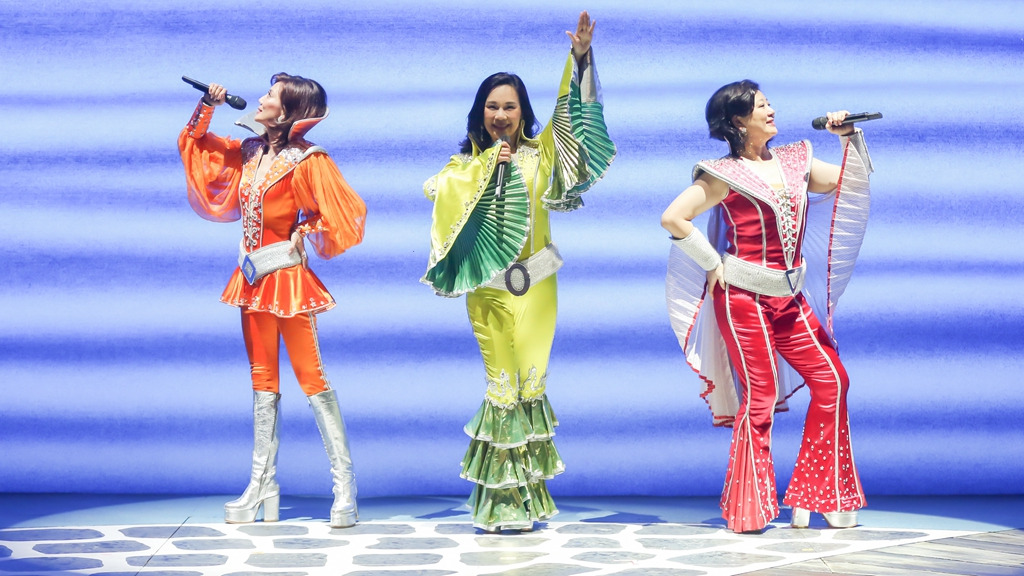
With twenty-two popular songs of the 1980s' iconic Swedish pop group ABBA, Mandarin version of the musical "Mamma Mia!" is back in China with a brand new cast.
The musical, written by British playwright Catherine Johnson, has been translated into 26 languages since its debut in London in 1999.
In 2008, it was turned into a Hollywood flick starring three-time Oscar winner Meryl Streep, and its sequel "Mamma Mia! Here We Go Again" was released in July this year.
"Mamma Mia!" tells the story of Donna, a single mother and a hotel owner in the Greek islands, who's preparing for her daughter Sophie's wedding with the help of her two old friends, Rosie and Tanya.
Meanwhile, Sophie secretly invites three men from her mother's past to find out her real father.
From singer and actress to 'dancing queen'
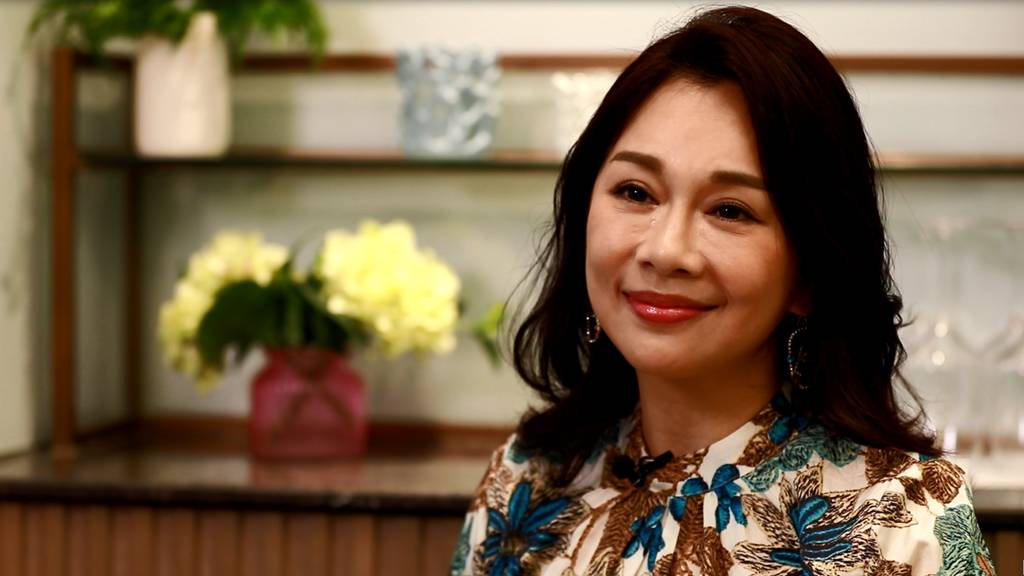
Adia Chan, a Hong Kong-born singer and actress, brings Donna to life. /CGTN Photo
Adia Chan, a Hong Kong-born singer and actress, brings Donna to life. /CGTN Photo
The Chinese production, which opened in July 2011 in Shanghai, has visited 24 cities in the country in the past three seasons.
One of the surprise elements for the Chinese audience is the participation of Hong Kong-born singer and actress Adia Chan, who plays Donna in the fourth season.
Born in the 1970s, Chan is well-known for her work in the field of music and acting.
"I've only participated in one musical in my career so far," said Chan, referring to her leading role in "Snow.Wolf.Lake," first Hong Kong modern musical staged from 1997 to 2006, starring Jacky Cheung who has been deemed as the "God of Songs" of Hong Kong.
The journey of "Mamma Mia!" is quite different for Chan. The intense choreography along with plenty of songs were a big challenge for the actress.
"I feel like I'm doing a sports show instead of a musical," Chan laughed, adding that she was soaked in sweat during every performance.
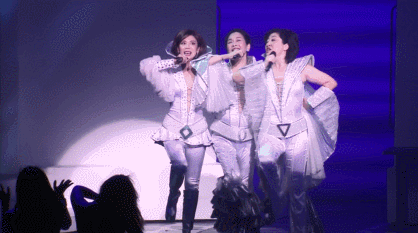
The fancy but tight costumes of "Super Trouper." /Gif via CDELive
The fancy but tight costumes of "Super Trouper." /Gif via CDELive
"When changing into the fancy but tight costumes of 'Super Trouper', the other girls and I will count from 'three to one,' and jump together to pull the pants up."
Considering her positive experience with "Mamma Mia", Chan said she would love to take up more musicals in the future.
Conflicts between a single mother and her daughter
Chan said that even though she does not have a daughter in real life she could related to her character Donna because she has lovely nieces.
"I see them as my daughters and I will not let anyone treat them wrong," Chan told CGTN.
The show looks deeply into the issue of single parenting. Chan said that the conflicts between Donna and Sophie are caused due to misunderstandings.
"She (Sophie) doesn't know who her father is, that's a big knot that's been lingering in her heart for 20 years."
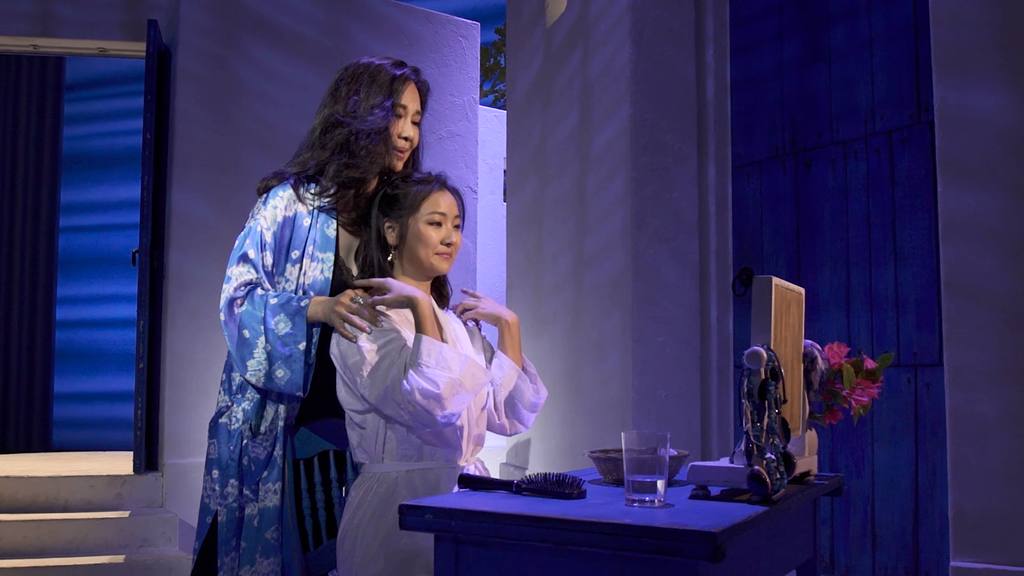
Adia Chan plays Donna (L) and Nian Manting as Sophie (R) during the musical. /CDELive Photo
Adia Chan plays Donna (L) and Nian Manting as Sophie (R) during the musical. /CDELive Photo
The actress believes that it's better for a child to grow up with both parents. "But it doesn't mean that you need to force yourself to find a partner, and the traditional framework might not be the best for you."
"The core of 'Mamma Mia!' is about women power. Every woman can solve her problems with love and understanding," Chan told CGTN.
Cultural translation
Efforts of localization can be spotted through out the play.
"In order to make jokes comprehensible for Chinese audiences, we need to translate the lines based on the culture rather than doing direct translation," said Li Jing, vice president of Content Operations of China Dream Live Entertainment (CDELive), organizer of the show.
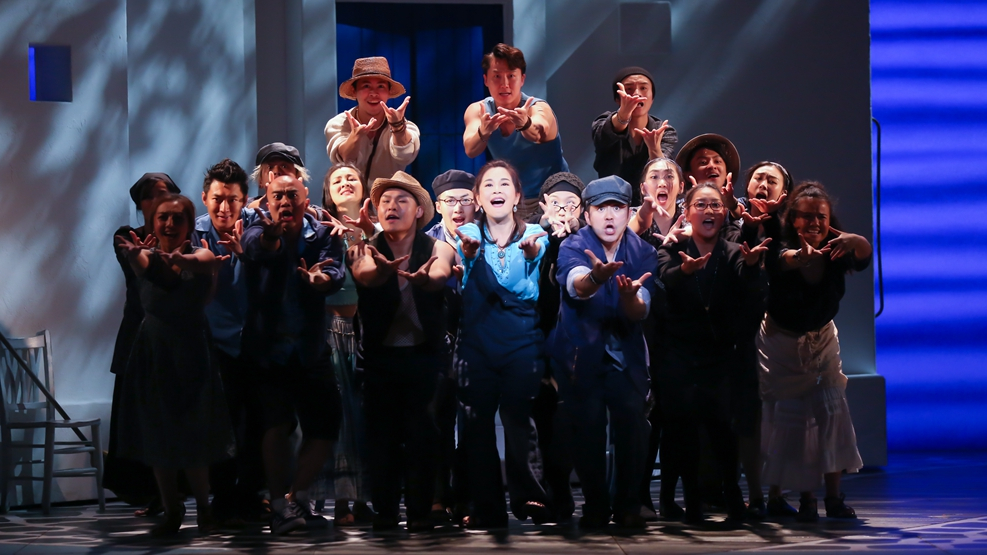
Efforts of localization can be spotted through out the Mandarin version of "Mamma Mia!" /CDELive Photo
Efforts of localization can be spotted through out the Mandarin version of "Mamma Mia!" /CDELive Photo
Here are some cultural translations CGTN spotted in the show:
- Yangko, a rural folk dance form of China, can be easily noticed in the dancing movements of Rosie and Tanya.
- Harry, one of the three possible fathers of Sophie's, makes fun of Donna's Mandarin accent because the Hong Kong actress is a Cantonese native speaker. And Chan in the show fights back with "My Mandarin is standard."
- When parents send off the kids in the end, one of the fathers gives Sophie a red envelope, a monetary gift which is given during holidays and special occasions in Chinese culture.
Incubator of musical talents in China
In the eyes of industry professionals, "Mamma Mia!" has been an incubator of musical talents flourishing in the business these days in China.
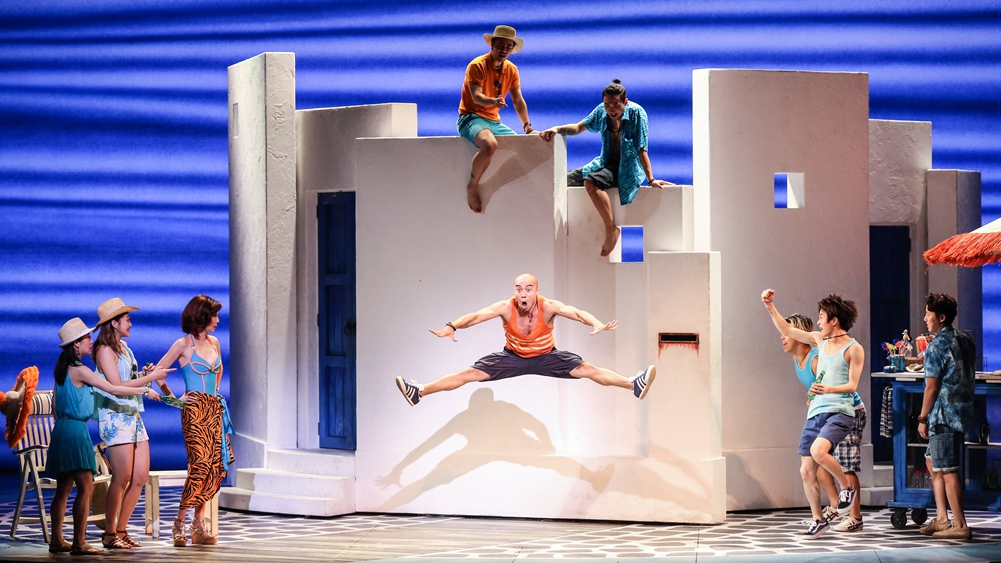
In the eyes of industry professionals, "Mamma Mia!" has been an incubator of musical talents flourishing in the business in China. /CDELive Photo
In the eyes of industry professionals, "Mamma Mia!" has been an incubator of musical talents flourishing in the business in China. /CDELive Photo
"There are more than a hundred musical actors who have participated in the past three seasons of the Mandarin 'Mamma Mia!', and many of them are now mainstay on musical stages of China," Li told CGTN.
According to Li, the company purchased the first class license of the show, which means the entire production is led by the British copyright owner.
Besides actors, crew members including director, scriptwriter and stage staff have benefited from the British production team.
"Although 'Mamma Mia!' has trained lots of musical talents and professionals in China, the power of only one musical is limited to the development of the whole industry in the country," said Li, adding that she wishes that more shows with international standard operating models are introduced in China, and help the country cultivate more professionals in the field.

SITEMAP
Copyright © 2018 CGTN. Beijing ICP prepared NO.16065310-3
Copyright © 2018 CGTN. Beijing ICP prepared NO.16065310-3